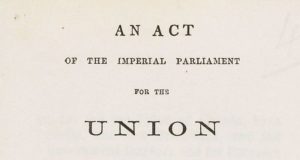In my last post on this blog, I commented and mostly praised two recent blog posts at Double Aspect by Mark Mancini from earlier this month calling for less deference to administrators in judicial review, unless a statute explicitly calls for such deference. But after I began drafting my response, a new development arose that now calls for a brief addendum.
Earlier this month, the Supreme Court released its decision in Canada (Minister of Public Safety and Emergency Preparedness) v Chhina. The decision made headlines for holding that detained migrants could bring an application seeking the writ of habeas corpus. I am insufficiently expert to have a strong opinion on the detention regime and the availability of habeas corpus, though I did find Justice Karakatsanis’s majority opinion compelling. Subject matter experts, such as Jamie Chai Yun Lieuw, also seem to be applauding the decision.
What could have flown under the radar on first impression is Justice Abella’s dissent, asserting that immigration officials should have their powers interpreted broadly so as to render immaterial the inability to resort to the courts and obtain the great writ. Implicit in her decision was a belief in the potential of administrative actors such as the immigration officials to facilitate justice.
Even in this case that did not concern the standard of review per se, we see Justice Abella again expressing faith in the administrative state to facilitate justice. Though often referred to as a “progressive” jurist (a label I wish we would reserve for the realm of politics), her macro-level concern to not constrain administrative action nonetheless shines through. This occurred even in a case where the courts declining jurisdiction was arguably an impediment to a “progressive” result and even in the face of evidence that the administrative state was not dispensing the type of justice that one might have hoped.
I add this brief addendum to my earlier post to attempt to emphasize, yet again, that standard of review and the fundamental role of the courts in judicial review should not be construed as a left-right political issue. I suspect many “Progressives” from the era of W.P.M. Kennedy (no relation) would be surprised, to say the least, that their successors are arguing for deference to immigration officials revoking citizenship or prison wardens assigning individuals to solitary confinement. While the opposite may occur in labour law, we should ask ourselves whether departing from traditional principles of statutory interpretation is justified in any individual case. And if a particular statute indeed calls for deference, principles of statutory interpretation can generally respect that.
One could of course argue that deference should be granted to all administrators for reasons such as efficiency, expertise, and independence. This is a genuine policy view to hold (though Mark Mancini convincingly casts doubt on whether the empirical assumptions underlying such viewpoints are actually true). But one should be careful what one wishes for regarding the consequences of such a view.
Now, it’s time to wait for the trilogy…
 Advocates for the Rule of Law
Advocates for the Rule of Law



